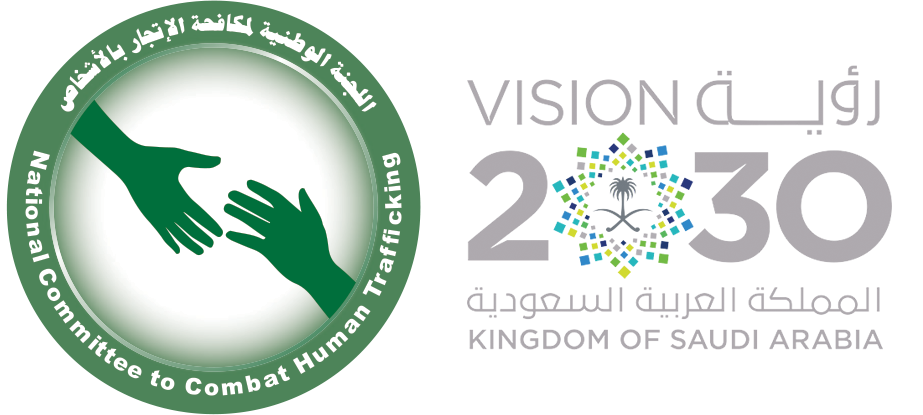Recognizing Trafficking
Many situations we see in our daily lives might contain indicators or signs of trafficking in persons. Some might seem trivial; others might seem shocking or dangerous. But to put an end to trafficking in persons, we must all get involved.
Stand up against human trafficking. Stay alert for these signs and, if you notice anything, alert the authorities.
Signs of Forced Labor or Domestic Work
- They cannot leave their work environment
- They exhibit signs that their movements are being controlled
- They exhibit fear or worry
- Their employer reports them missing even though they still live in his house
- They – or their family members – are exposed to violence or threats of violence
- They suffer from injuries that appear to be a result of abuse
- They are under threat to be turned over to the authorities
- They do not have travel documents
- They allow others to speak on their behalf even when addressed directly
- They receive low wages, if any
- They work for excessively long hours
- They do not have vacation days
- They live in poor or substandard accommodation
- They do not have access to healthcare
- Their transport fees to destination countries have been paid by brokers, whom they must pay back through work or services
- They believe they are shackled by debt
- They do not have a private place to stay and sleep
- They are subject to insults, abuse, threats, or violence
Signs of Sexual Exploitation
- They cannot leave their work environment
- They exhibit signs that their movements are being controlled
- They exhibit fear or worry
- They – or their family members – are exposed to violence or threats of violence
- They suffer from injuries that appear to be a result of abuse
- They are under threat to be turned over to the authorities
- They do not have travel documents
- They allow others to speak on their behalf even when addressed directly
- They receive low wages, if any
- They work for excessively long hours
- They do not have vacation days
- They live in poor or substandard accommodation
- They do not have access to healthcare
- Their transport fees to destination countries have been paid by brokers, whom they must pay back through work or services
- They believe they are shackled by debt
- They only know sexual vocabulary in the local language, or the language of their clients
- Most of their clothes are of the sex work variety
- They have tattoos or other marks that indicate “ownership” by their exploiters
- There is reason to suspect they are victims who cannot refuse sexual relations, even if unprotected or violent
- They are of any age, given that ages may vary depending on the place
Signs of Labor Exploitation
- They live in groups in the same place where they work and rarely get to leave, if at all
- They live in degrading and unsuitable places, such as farmhouses or factories
- Their clothes are not suited for the type of work they do, and may – for example – lack protective equipment or warm clothes
- They do not have a work contract
- They have excessively long hours (contrary to what is stipulated in the Labor law)
- They suffer from injuries that appear to be a result of abuse
- They are under threat to be turned over to the authorities
- They do not have travel documents
- They allow others to speak on their behalf even when addressed directly
- They receive low wages, if any
- They work for excessively long hours across long stretches of time
- They do not have vacation days
- They rely on their employers to receive a number of services, such as work, transportation and accommodation
- They do not have access to healthcare
- Their transport fees to destination countries have been paid by brokers, whom they must pay back through work or services
- They believe they are shackled by debt
- They are disciplined with fines
- They lack basic training and professional licenses
Signs of Forced Begging
- They are children, disabled refugees or elderly who often beg in public places and aboard public transportation
- They are children who carry or sell illegal drugs
- They exhibit fear or worry
- They have physical disabilities that appear to be a result of amputation
- They belong to gangs with members of the same nationality
- They suffer from injuries that appear to be a result of abuse
- They are under threat to be turned over to the authorities
- They do not have travel documents
- They travel daily in big groups across long distances
- They receive low wages, if any
- They work for excessively long hours across long stretches of time
- They are subject to insults, abuse, threats or violence
- They live in poor or substandard accommodation
- They do not have access to healthcare
Signs of Child Trafficking
- They cannot contact their parents or guardians
- They exhibit fear and act in a manner inconsistent with the typical behavior of children their age
- They do not have friends of their own age outside work
- They do not have access to education
- They do not have time to play
- They live away from other children in substandard accommodation
- They perform jobs unsuitable for children
- They travel unaccompanied by adults
- They do not have travel documents
- They do not know the local language
- They allow others to speak on their behalf even when addressed directly
- They travel in groups with persons who are not their next of kin
- They have clothes usually worn by children during craftwork, or in sex work
- Toys and children beds and clothes are found in inappropriate places such as brothels and factories
- They live in poor or substandard accommodation
- They do not have access to healthcare
- Unaccompanied children are found with phone numbers to hail cabs
- Illegal cases of adoption are detected


